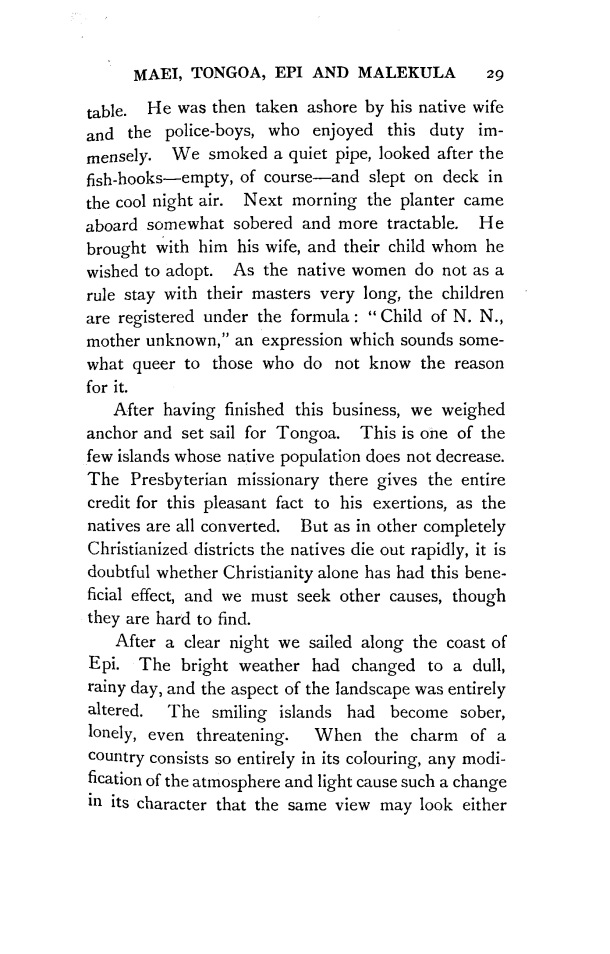|
|  [Note: this transcription was produced by an automatic OCR engine]
MAEI, TONGOA, EPI AND MALEKULA 29
table. He was then taken ashore by his native wife
and the police—boys, who enjoyed this duty im-
mensely. We smoked a quiet pipe, looked after the
fish-hooks—empty, of course—and slept on deck in
the cool night air. Next morning the planter came
aboard somewhat sobered and more tractable. He
brought with him his wife, and their child whom he
wished to adopt. As the native women do not as a
rule stay with their masters very long, the children
are registered under the formula: “Child of N. N.,
mother unknown,” an expression which sounds some-
what queer to those who do not know the reason
for it.
After having finished this business, we weighed
anchor and set sail for Tongoa. This is one of the
few islands whose native population does not decrease.
The Presbyterian missionary there gives the entire
credit for this pleasant fact to his exertions, as the
natives are all converted. But as in other completely
Christianized districts the natives die out rapidly, it is
doubtful whether Christianity alone has had this bene-
ficial effect, and we must seek other causes, though
they are hard to find.
After a clear night we sailed along the coast of
Epi. The bright weather had changed to a dull,
rainy day, and the aspect of the landscape was entirely
altered. The smiling islands had become sober,
lonely, even threatening. When the charm of a
country consists so entirely in its colouring, any modi-
fication of the atmosphere and light cause such a change
in its character that the same View may look either
|